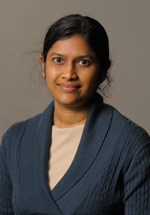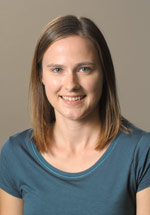Quantifying Second Language Proficiency
Advances in natural language and speech processing have enabled the development of computer-aided language learning systems. A critical component of these systems is the ability to make objective assessments of language proficiency - written or spoken. We discuss novel automatic measures of language proficiency and evaluate their effectiveness in the context of a state-of-the-art operational spoken language assessment system. Our results have natural implications in the domains of natural language processing and second language acquisition.

The Monitoring and Strategic Control of Memory Representations in Younger and Older Adults
It is well-established that certain memory abilities decline across the adult lifespan. This phenomenon is often characterized as loss of information retention (or more "forgetfulness") with age. In my talk, I will discuss situations in which differences in memory performance can instead reflect changes in how younger and older adults initially process and explore to-be-remembered information. I will demonstrate that during learning, individual differences in the structure in older adults' exploratory eye movements—quantified using Shannon entropy—relates to performance on both laboratory and neuropsychological tests of memory. I will also provide evidence that older adults' use of certain verbal encoding strategies is constrained by the ability to flexibly retrieve information during online language processing. Finally, I will argue that the mechanisms that underlie these age-related changes to learning behaviors are not independent of those associated with declines in long-term memory. Rather, these phenomena reflect a role of the neurocognitive architecture of memory in the selection and optimization of goal-directed behaviors, including memorization strategies.
